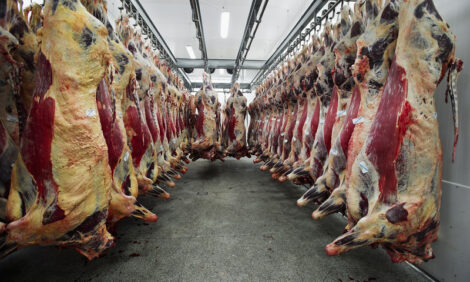



IBM Track Manitoba Meat with Digital Passport
MANITOBA, CANADA - A new food traceability system in Manitoba was shown to work after a test tracked food from farm to fork.IBM and the Province of Manitoba have successfully tested a new system which makes it possible to digitally trace the journey food takes before it ends up in consumers' shopping carts. Through the project, Manitoba has taken the first step in implementing a provincial traceability program.
The project tracked data about product movement, animal history and characteristics, processing history and transportation data throughout the complete value chain.
IBM provided business consulting and project management services, working with the Province of Manitoba and more than 16 supply chain partners, including beef and pork producers, animal feed ingredient producers, feed manufacturers, farmers, processing plants, truckers and a retail grocery chain.
* "Now that the proof of concept has been completed, we can look at implementing a traceability program" |
|
Manitoba Agriculture, Food and Rural Initiatives Minister Rosann Wowchuk.
|
The wide scope of the Manitoba project was essential. The average dinner has been through a complex supply chain by the time it reaches a consumer's table. Dozens of companies are involved in the production of just a single rib eye steak. Consumer product recalls - from spinach and chocolate to peanut butter - illustrate the importance of access to timely information, when needed, at any point along the supply chain, for safety and quality assurance reasons.
Using Global Traceability Network (GTNet) software from IBM business partner TraceTracker, Manitoba's project demonstrated it is possible to securely and accurately gather and crunch data about a piece of meat from a variety of sources and share that information, at any step in the process. As a web platform, the GTNet allows trading partners to exchange critical product information so they can communicate key messages to customers and consumers.
"As the agricultural industry continues to grow in Manitoba, so does the need for a traceability system that keeps track of all products from farm to fork," said Manitoba Agriculture, Food and Rural Initiatives Minister Rosann Wowchuk. "Now that the proof of concept has been completed, we can look at implementing a traceability program that will help to assure the quality and safety of all consumer goods and also ensure that consumers - locally and across the country - feel confident in the products they consume."
Ultimately, the system also can be used to provide messaging that will help re-establish and reinforce consumers' confidence in the food products they're buying. In fact, IBM surveyed more than 1,600 consumers in 2007 and found nearly 70 per cent expressed a low overall level of trust in the claims branded food products make about their environmental impact and health benefits. Almost half of consumers were concerned about safety, and nearly two out of every five said they buy different brands today because of these concerns.
"Traceability that can safeguard the food supply and address compliance and supply chain efficiencies and product differentiation has huge implications for both consumers and food producers alike," says Susan Wilkinson, IBM Global Business Services traceability solutions executive and contributing author of the IBM Institute for Business Value study Establishing Trust Through Traceability.
"This successful test presents all participants with a number of avenues for innovation. One example is an organic food producer could offer consumers the equivalent of a 'digital product passport' to validate the authenticity of their statement the product is produced naturally."
The completed project has provided Manitoba with a hands-on experience in food traceability and a better understanding of the complex value chain involved in delivering safe food to consumers.
TheCattleSite News Desk


